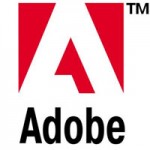Web publishers can pick which keywords and sites to search, then color-coordinates results to match their motif.
Google Inc. is ready to let Web publishers and bloggers create custom searches on their sites, in a move that could make searches more relevant to consumers and allow the company to charge more for advertising, Google said in a statement.
With the Google Custom Search Engine, Web site and blog publishers can provide custom results most relevant to their readers, incorporating a site’s online community and its ability to provide contextual ads…
The customized search engines can also be tailored to aesthetically match any Web site.
“This is a new direction for Google,” group product manager Shashi Seth said in a telephone press conference. “We are opening Google’s search platform.”
The Internet search leader said the new Google Custom Search Engine relies on the same underlying database of Web sites to allow companies or individual users to set up personalized online searches — on topics ranging from global climate change to gossip on pop stars.
"This is really a way to make your own version of Google search," Marissa Mayer, Google’s vice president in charge of search, said in a phone interview with reporters.
Yahoo has introduced a similar product, called “Search Builder,” but Google says its service allows more customization.
“We have some features we feel are quite unique,” said Ms. Mayer, for search products and user experience. “We allow people to restrict or prioritize search results based on the sites they have chosen.”
My Google vs Your Google
The search engine can be customized quickly by choosing “keywords and a list of sites” the publisher wants included in the search index, what the search results will look like on their own Web sites and whether other users can contribute their own favorite links to the index. These can be the only sites searched, or simply the ones with the highest priority. Alternately, users can exclude sites from the search index.
After entering the information, a line of code will appear. The custom search engine can be hosted on a user’s site. “Currently, anyone can put a Google search box on their site, but the search results are derived from Google’s constantly changing database of billion of sites.”
Instead of the classic blue text on white background familiar to Googlers, Web site publishers can make the search results match the motif of their own site. For instance, “a Los Angeles Lakers’ blog could return results swathed in purple and gold.”
Soccer fans could customize website search boxes to scan sites related to the World Cup; cancer support groups could focus searches on Medical Resources; or movie star lovers could target Celebrity Gossip.
“Custom search engines empower community,” Seth said. “What is more powerful than finding information on your website and having the community make it better? In the end, we want the Google platform everywhere.”
Users can utilize other features as well, but doing so adds more time to the customization process. Custom Search also has the Google Marker tool, which allows sites to be immediately added or restricted from the search index. This tool can be set to allow only the site’s publisher to exercise this option while surfing the Web, or invite a few people, an entire community or random visitors to do the same.
Universities, government organizations and recognized non-profit groups will be given a choice of whether to run ads alongside their search results, or not. Commercial users will be required to carry Google ads to pay for the free service.
The custom search product lets new and old AdSense customers combine their custom search results and split the ad revenue with Google, the company said.
The ability to make money from the search pages through Google AdSense program is “icing on the cake,” Seth said.
Intuit Inc., the company behind Turbo Tax and Quicken personal finance software, is relying on Google Custom Search on a new site it is testing called JumpUp.com that helps new business owners connect with other business owners.
RealClimate.org, another site testing Custom Search, only links to sites it deems to offer credible expert opinion on the science of climate change, bypassing highly politicized sites.
Due to the controversial nature of the topic, online information regarding global warming ranges from "excellent to atrocious," said Gavin Schmidt of RealClimate.
With the Custom Google Search facility, we are able to create a searchable subset of the web that in our expert judgment provides solid and reliable information, Schmidt said in a release. "Hopefully, it will allow users to get to the good stuff faster, without some of the confusion that currently occurs."
Google Custom Search Engine was rolled out in the United States and was available at www.google.com/coop/cse. Google plans to expand the offering internationally in the coming weeks.
The announcement, which executives said was one of the biggest it will make this quarter, came after shares of the Web search leader set a fresh lifetime high of $480.78, following a strong quarterly financial report last week.
The Google Custom Search Engine is the company’s biggest push yet to rely on "the wisdom of crowds," where rival Yahoo Inc. and start-ups such as Rollyo.com and Eurekster.com have focused for several years.
Google is moving beyond the formula-driven, one-size-fits all way it indexes the Web to a relativistic approach for finding sites. The move also points toward a balkanization of what different groups of people see on the World Wide Web.
“It is basically applying human judgment by saying I can make search better by allowing people to decide,” said Forrester Research analyst Charlene Li.
The growth came as Google’s largest rival, Yahoo, has suffered from weak sales of search and display advertising. The profit report prompted several Wall Street analysts to raise their ratings on Google stock.

